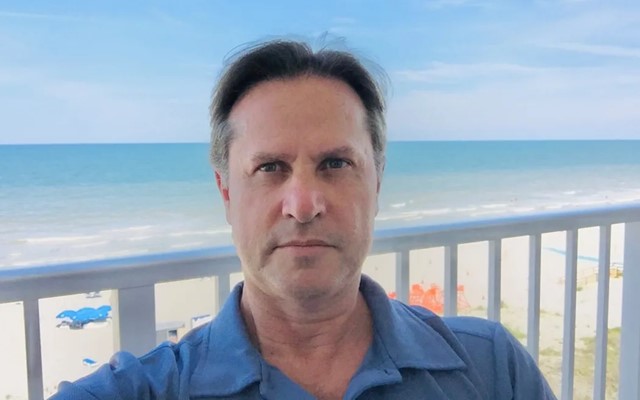Health system relies on doctors overworking, says burnt out cardiologist

Dean Boddington finishes his permanent role at Tauranga Hospital this Friday. Photo supplied
RNZ
Health New Zealand Commissioner Lester Levy is "living in La La Land" and has no idea what's happening on the ground, a cardiologist who finishes up at Tauranga Hospital on Friday because of burnout says.
Dr Dean Boddington wrote to Te Whatu Ora / Health New Zealand about his concerns a year ago, but said nothing had changed.
He told RNZ's Nine to Noon he had been telling hospital management for two and a half years that he had too much work.
Dr Boddington, an electrical cardiologist, was the only person who did certain procedures for heart arrhythmia patients in the Bay of Plenty, and he also had general cardiology duties.
He said he told management it was a two-person job.
"It's really got to a terrible point... I also pointed out that I'm getting towards the end of my career.
"Just keep getting the same answer, which is no, there is no money, there will be no second person."
Dr Boddington, a member of the Association of Salaried Medical Specialists union, said the final straw for him was specialists being told they would have to fill in for junior doctors in the emergency department, on top of their other work.
"The problem is the hospital no longer has enough junior doctors so we as the specialists are now being called on to cover for them... that for me was the point at which I thought, no I'm not doing this anymore."
A colleague from the cardiology department has also recently retired, and despite also giving significant warning, neither has been replaced, Boddington said.
He said the person found to replace him couldn't start until September 2025.
The cardiology team was "currently a bit of a disaster".
"That is severely hindering the ability of the department to function."
High priority patients were waiting up to 6 months to be seen and low priority patients "I'm not sure you're gonna get seen at all," Dr Boddington said.
Health Commissioner Lester Levy was "living in La La Land" and Te Whatu Ora had no idea what was happening on the ground, he said.
The focus on budgets was "going to cripple the system".
"The whole system relies on people overworking."
And he expected more doctors would quit. His own resignation had made him the envy of his colleagues.

"So many people have said to me good for you, you're the lucky one and I wish I could do it."
Dr Boddington planned to remain in private practice and was considering working overseas.
He would also work at Tauranga Hospital as a locum providing his specific procedure until his replacement arrives.
In an open letter published in the Bay of Plenty Times in September 2023, Dr Boddington expressed disappointment at the reaction to his concerns.
He claimed there was a campaign to discredit medical specialists who spoke out, partly but mentioning their high salaries, which he believed were overstated.
"It would probably require working around 60 hours a week to earn the top salary they have portrayed. We do not want to be working those hours. We are tired of covering for staff shortages. We also have families we would like to spend time with."
Dr Boddington also lauded former Health NZ boss Rob Campbell, who was fired over political attack he made about the National Party's Three Waters policy.
"Sadly, he is no longer with Te Whatu Ora, probably because he tried to rock the boat of the bureaucrats. In brief, Rob apologised to healthcare workers and admitted that he failed in his role because he was too nice to the bureaucrats."
He was critical of Te Whatu Ora bureaucrats who had "no skin in the game" and squeeze health professionals, relying on their commitment to patients to continue working under any conditions.
Successive governments, Te Whatu Ora and the Ministry of Health were all to blame, Dr Boddington said.
Te Whatu Ora group director operations for Bay of Plenty Pauline McGrath said the Tauranga community, including cardiology patients, would continue to receive the care they needed.
A cardiologist had been recruited and work was continuing on recruitment to fill all vacancies, she said.
Fixed term appointments would cover until permanent cardiologists were appointed.
"We know that workforce shortages in some areas are putting pressure on the frontline and recognise the impact this is having on our people."
She acknowledged the hard work of medical staff.
"Ensuring we have enough doctors, nurses, and allied health professionals is a top priority for Health NZ."
McGrath said that while progress had been made, there were still specialist areas with gaps in some regions.
"We are working hard to recruit to these vacancies and continue to focus on retaining and developing our current workforce."